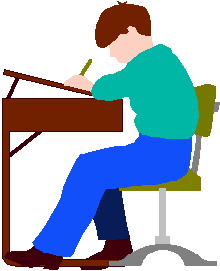Technology has had a huge impact on public education. Classrooms of today look quite different from those of a generation ago. It shows just how quickly technology changes and the extent to which it dominates our children’s lives.
However, while it makes sense to ensure that students and teachers have reasonable access to computers, technology should never be the driving force behind education reform. Good teaching is good teaching, regardless of whether it happens in a classroom equipped with the latest technological gadgets or not.
In far too many cases, schools are replacing textbooks and other traditional reading resources with online books and articles. The reasoning behind this is that it saves money and makes it easier for teachers to continually provide their students with up-to-date information.
At first glance, these reasons seem compelling. But they overlook one key fact—research shows that students’ reading comprehension is typically better when reading words on paper than when reading the same words on a screen.
A recent study published in the journal “Scientific Reports” compared two groups of university students. One group read text on paper while the other group read the same text on a smartphone. Students who read the article on paper answered more comprehension questions correctly than those who read it on a smartphone.
Interestingly, study participants also wore special headbands that measured prefrontal brain activity and masks that measured their breathing patterns. Students who read the article on smartphones showed higher brain activity and exhibited fewer deep sighs than those reading the same article on paper.
In their analysis, the study authors suggested that the correlation between higher brain activity and fewer sighs indicates that students reading the article on smartphones experienced a higher cognitive load than those reading it on paper.
Cognitive load refers to the amount of working memory being used to complete a task. Students who experience a high cognitive load are more likely to struggle than students with a low cognitive load. This is why students who have memorized their times tables find it easier to solve advanced math problems than those who have not memorized these basic facts.
In other words, a low cognitive load is good for students because it shows that they are more familiar with the information.
This study is far from being an outlier. Many other research studies came to a similar conclusion; reading on a screen is more mentally taxing than reading on paper. It’s a well-known fact that too much screentime leads to eyestrain and that people tend to skim more quickly through articles on a screen.
Thus, instead of making students spend more time on screens, teachers should encourage students to read physical books and articles. Students already get plenty of screentime while at home. The last thing they need is to spend several more hours looking at a screen in school.
To be clear, this doesn’t mean students shouldn’t use any technology at all. Obviously, computers have their place—particularly for high school students who use them to write their essays. It just means that we should not put all our eggs in the technology basket.
The evidence is clear that students need to spend more time reading books and less time reading screens. Good teaching, not more technology, is the key to improving student achievement.
Michael Zwaagstra is a public high school teacher, a senior fellow with the Frontier Centre for Public Policy, and author of A Sage on the Stage: Common Sense Reflections on Teaching and Learning.



